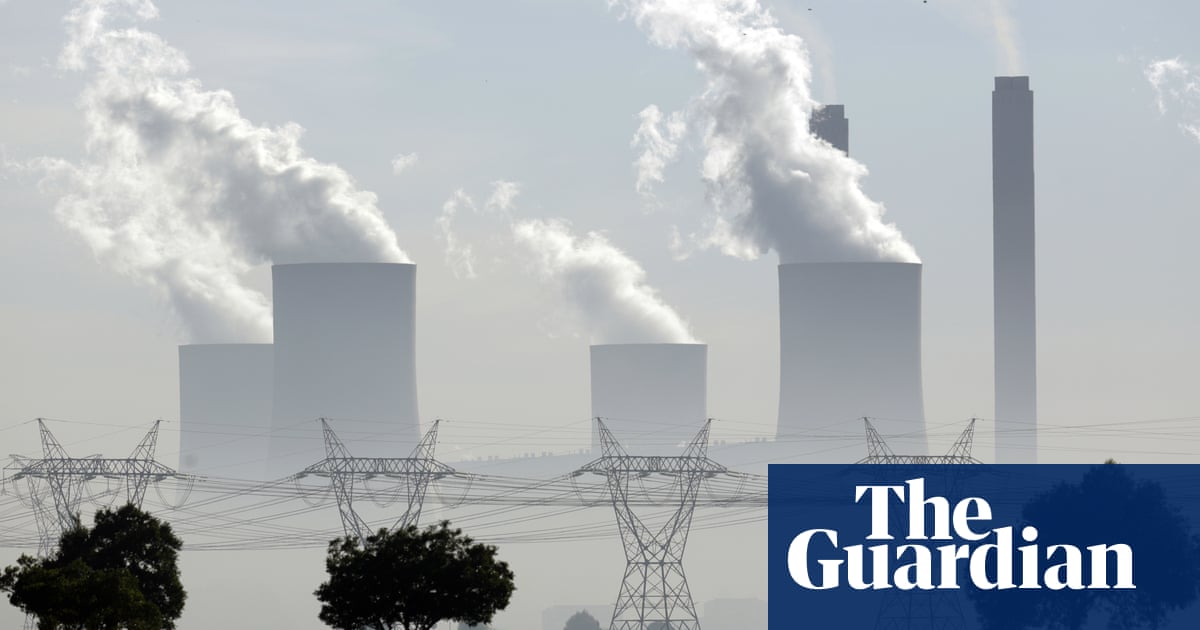
Only about 6% of pandemic recovery spending has been “green”, an analysis of the $14tn that G20 countries have poured into economic stimulus.
Additionally, about 3% of the record amounts governments around the world have spent to rescue the global economy from the Covid-19 pandemic has been spent on activities that will increase carbon emissions, such as subsidies to coal, and will do little to reduce greenhouse gases or shift the world to a low-carbon footing.
The analysis of the G20 fiscal stimulus spending, published on Wednesday in the journal Nature, belies claims many governments made of a “green recovery” that would “build back better” from upheavals caused by the pandemic and lockdowns.
It comes just after the Intergovernmental Panel on Climate Change issued “the bleakest warning yet” of the ravages of climate breakdown already under way, warning only urgent action to cut emissions could stave off the worst outcomes.
Jonas Nahm, assistant professor in the School of Advanced International Studies at Johns Hopkins University in the US and lead author of the study, said governments had missed a vital opportunity, but there were still ways to improve the situation.
“The spending directed towards economic recovery could have significantly improved our chances of staying within 1.5C [of global heating] and we’ve collectively missed that opportunity,” he told the Guardian. “It’s disappointing that governments have yet to fully grasp that economic growth, prosperity and emissions reductions are actually complementary.”
While much of government spending in the pandemic contributed to funding for health systems and propping up wages, nations missed the opportunity to attach “green strings” to the rescue packages for fossil fuel industries. France, for instance, insisted airlines receiving bailouts must stop competing for passengers with train services on most domestic routes, but no other countries made significant stipulations to their industries.
The UK performed particularly poorly, with only 10% of its stimulus spending going towards measures that could reduce emissions. This comes despite soaring green rhetoric from the prime minister, Boris Johnson, who promised repeatedly to “build back greener” ahead of hosting the Cop26 UN climate summit in Glasgow last November.
Nahm said: “The UK had some really promising policy ideas early on, in particular a large package for energy efficiency in residential homes [the green homes grant] that would have yielded large, immediate, and permanent emissions reductions. Unfortunately there were problems with dispensing the money and the scheme was ultimately cancelled. Overall, the UK commitment to climate in its approach to economic recovery has not matched its commitments to solving the climate crisis.”
The EU did far better, with more than 30% of its stimulus judged green, while the US shows a mixed picture. Some of its stimulus package passed successfully, and some entailing further green spending is mired in Congress.
Some governments directed huge sums to fossil fuels: India spent $14bn propping up its coal industry during the economic downturn, for instance, and South Africa earmarked $11.4bn in guarantees to buy electricity, largely from coal-fired power plants. China increased production from coalmines, leading to a sharp rise in coal use.
Economists have pointed out investing in many of the areas needed to shift the economy to a low-carbon footing would have economically beneficial impacts, leading to short- and long-term jobs. Insulating homes, installing networks of electric vehicle chargers, constructing renewable energy generation, planting trees and building flood defences all require skilled and unskilled labour, and produce health and social benefits as well as reducing carbon emissions.
The paltry levels of low-carbon spending revealed in the Nature study show the recovery from Covid-19 has been less green than that from the 2008 financial crisis, when about 16% of recovery spending went towards activities that reduced greenhouse gas emissions or improved the environment.
Ed Barbier, professor of economics at Colorado State University, who carried out a landmark study on the 2008 financial crisis, said governments were using economic models that underestimated the risks of fossil fuels. His work was not involved in the Nature study.
“By failing to correct the underpricing of fossil fuels and underspending on green recovery, G20 economies are failing not only to build back greener but also to provide the global leadership the world economy desperately needs to transition to net zero carbon emissions by 2050,” he said.


